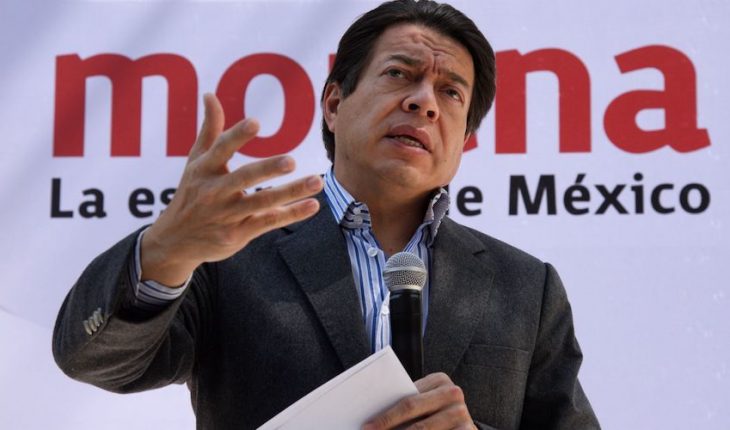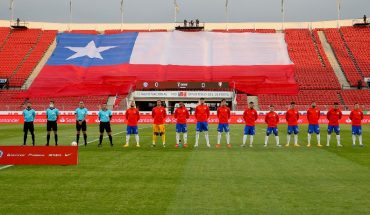Morena’s leadership rated as reserved the polls that served as the basis for selecting its candidates and candidates for governors in 15 states.
The booking includes not only the results, but also methodological details, such as the battery of questions included in the questionnaire, the sample considered, the survey mode (in-person or telephone), the periods and geographical areas of survey and how many interviewers did the work.
Read more | Brunette vs. Brunette: These are the aspiring state candidacies that question the party’s polls
Morena’s polls have been criticized even by the same contenders due to the lack of transparency of the match, which has proclaimed winners to certain profiles without publicising the evidence that underpins the selection.
In turn, demososcopic specialists questioned the methodology and technological and operational capacity employed by Morena to carry out, in short periods, the lifting and processing of massive amounts of information.
The party has argued that its exercises are done “at home” and that no private company is hired. For this year’s elections, the survey was established as a preferred method of selecting candidates for gubernaturas, mayors and meps, which means that a single instance – the National Survey Commission – must carry out multiple information-raising processes and compute a vast amount of data.
This commission consists of the writer Pedro Miguel, the economist Ivonne Cisneros and Rogelio Valdespino Luna, a former member of the Secretariat of the Morenist Organization, where he collaborated with Gabriel García, now head of the super delegates and the so-called Servants of the Nation.
Amid that opacity, the party announced that it will make a new consultation in Guerrero to define its candidacy for the state government. In that new survey you will be able to re-participate, and even win, Senator Felix Salgado Macedonio, accused of rape and sexual abuse.
“It’s reserved information”
In response to a request for transparency of this medium, Morena refused to provide any information related to her candidate selection surveys, from the results to the methodological elements thereof.
The party sued its refusal in the General Law of Political Parties, which considers as reserved the information “contained in all kinds of surveys ordered by them”.
“According to the aforementioned legal system, the surveys carried out by this political party are reserved, so it is not possible to deliver them,” the obligated subject said in his reply.
However, the party obstructed the fact that the methodology cannot be considered “contained” information in the polls, as is the case with the results, which are covered by the reserve of the Party Law.
The opacity around their surveys has already been the subject of a federal Electoral Court challenge. On February 25, the Regional Chamber of Mexico City sanctioned the party for not having transparented the methodology and criteria of the survey with which it will define its candidacies in Puebla for local councils and mayors.
Election judges noted that the reservation of information on polls, while it exists, should be temporary; they also found that aspiring election positions have the right to know the results of the measurements so that they can take legal defense if they specify it.
“They never showed us the results”
Several morenists criticized, and even challenged, the polls with which the party defined its candidates and candidates for state governments.
This week, Senator Nestora Salgado told Political Animal that the leadership never showed the aspirants the results of the survey with which Felix Salgado Macedonio allegedly won the candidacy for Guerrero’s government.
“We all asked for it (see the survey), I think we all wanted to see that. I don’t remember what they told me, but no one, of the colleagues I’ve talked to, has seen the outcome of a survey. I’m not interested if I’m in 20th place, but they did say, ‘Your job hasn’t worked,’ at least, and I’m very happy to make you want it more,” she said in an interview.
“We (applicants) went to a meeting where a pact was signed that whoever lost would stay supported, it’s something that was respected, but I never saw them show us a survey as such, or that it was the public polls and they said, ‘Fulano of such was in the first place, Zutano in the second place, and so’, we never saw it.”
The Warrior Senator, who was leader of the Police Olinalá Community, he even said that his support bases in Guerrero never saw Pollsters of Morena nor received phone calls to be interviewed.
“In fact, my people were very attentive, the structures we have in Guerrero were very aware of the surveys, of the calls, and there were, we do not really know what the survey was like, where they surveyed, where they called; at least we’ve never been clear about that,” he said.
One of the most drastic cases was Colima. Deputy Claudia Yáñez resigned from her militancy in Morena after accusing that the survey to define the candidacy in that state had been a sham to justify an imposition. The super-delegada in Colima, Indira Vizcaíno, was presented as the winner by the leadership.
Vizcaíno has been reported to the Secretariat of the Public Service (SFP) for alleged misuse of public resources and nepotism. One of the complaints was filed by Yáñez he hed.
“It is inadmissible that by dark interests and previous quota agreements they imposed on ‘super delegates’ as candidates, some accused of corruption, despite being ineligible for making competition fair, riding that charade in which, trampling on our rights, they often used our records and letters of adherence to support that imposition,” Yáñez said in his resignation.
Two other morenistas, the Chihuahua Cruz Pérez Cuéllar and the Zacatecano José Narro Céspedes, pointed to irregularities in the survey, demanded that the methodology be transparent and announced that they would challenge the results.
“We may not have been asked before we did the methodology survey and who was going to do the survey; it had initially been agreed that the survey would be conducted face-to-face, personally, today I am told that it was done over the phone, the telephone polls are unreliable,” Senator Narro said in a video.
The legislator suggested that, instead of designing a technical sample, the party used the standards of beneficiaries of social programmes to tip the balance in favor of super-delegation David Monreal, in charge of operating such government support.
For his part, Senator Cruz Pérez Cuéllar said plainly that the polls had been “spooned.”
“No company has that capability.”
Consultant Rafael Giménez-Valdés, who collaborated with Morena in conducting surveys for the 2018 election, noted that if the party calls for its militancy to register for a selection process, it must give reliability to the process and give confidence to the participants.
“Yes it will cause discomfort; there are very hot places in the Morena camp where they have many capable candidates, and I don’t see how they might not be upset in case they don’t win. That is the greatest damage I see: people who do not win, who do not see transparency, who may have a major annoyance with the process; Transparency in all processes is always better,” he said in interview.
The specialist, who was coordinator of Public Opinion of former President Felipe Calderón and head of the campaign of Josefina Vázquez Mota in 2012, calculated that the National Commission of Morena Surveys would have to process between 250 and 300 thousand questionnaires of about 30 questions for the selection of nominations to governments, federal councils and some mayors. That, not counting the cases in which the party studies to choose local candidacies.
Giménez-Valdés noted that applying such a number of questionnaires requires a field force of hundreds of pollsters. The cost of the entire survey nomination selection process, estimated, would be around 60 million pesos.
“Mexican agencies definitely don’t have that ability to lift a survey like that in a month. None, not even the biggest,” he concluded.
What we do at Animal Politics requires professional journalists, teamwork, dialogue with readers and something very important: independence. You can help us keep going. Be part of the team.
Subscribe to Animal Politics, receive benefits and support free journalism.#YoSoyAnimal
translated from Spanish: Morena reserves survey data to elect candidates in states
March 3, 2021 |





